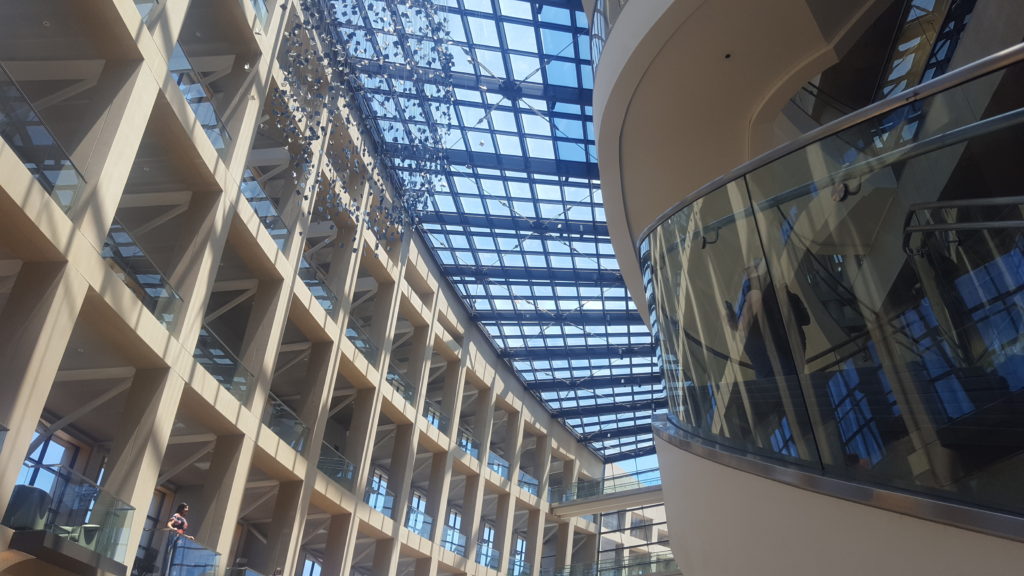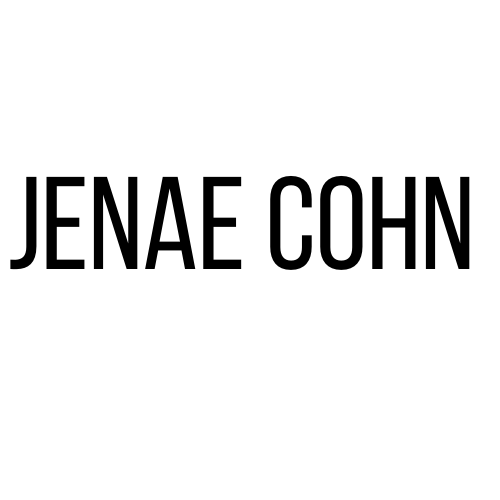
End-of-year lists are one of my favorite things to read in December. From year-end books to movies to podcasts, I love the process of compiling a huge “to-consume” list of things to catch up on before the new academic year begins. Just as fun as reading these lists is making one’s own. There is a unique pleasure in looking back on the year and reflecting on all that one has learned, collected, and cherished.
In that spirit, I wanted to share my top 10 list of articles related to learning, higher education, and technology that really shaped my perspective this year. All of these pieces helped me develop a new, deepened appreciation for what it means to learn, teach, read, and write in the world today. My selection process here was pretty simple: I went back into my list of bookmarks and, as soon as I came across a piece that made me go, “Ah-ha! I really remember that!” I put it on my list here. Perhaps I’ll have a more scientific process next year, but my main goal here is to amplify voices that I felt really grateful for being able to read. As I look ahead to next year too, I hope to continue to keep track of and give “thanks” to those of you writing and sharing brilliant thoughts about education, design, and learning.
I should note that this list is in roughly chronological order. I hope that some of you enjoy these reads too and learn as much from them as I did!
1.From Redlining to Digital Redlining: (this is a video, not an article!) Chris Gilliard (for the University of Oklahoma Academic Technology Expo)
So, this is technically not an article, but I watched Chris Gilliard’s lecture on “digital redlining” and it completely changed how I understand the ways that digital tools and technologies an actively promote racial discrimination. This talk is a powerful reminder of how educators must continue to resist insidious technologies and their polarizing effects. Our stance must always be critical, on the other hand, and we must teach students to adopt the same critical awareness.
2. Media Literacy is About Where to Spend Your Trust. But You Have to Spend it Somewhere: Mike Caulfield (for Hapgood)
I’ve been following Mike Caulfield’s work for over a year now and have been sharing his fantastic textbook for college students, Web Literacy for Student Fact-Checkers, basically whenever I’ve been able to do so. Caulfield is doing the immensely important work of naming concrete web search strategies our students can use to become smarter consumers of online content, and this blog post really gets at the heart of why those strategies matter now more than ever.
3. No, cognitive strengthening exercises aren’t the answer to media literacy: Benjamin Doxtdator (for A Long View on Education)
Obviously, a big topic for 2018 was “fake news” and its impact on higher education, and I really appreciated Doxtdator’s take in this debate. In response to a talk from danah boyd, Doxtdator makes the really important point that media literacy is not depoliticized and not just about empathy: media literacy is about understanding the political systems underpinning how information is consumed and circulated. (He cites the really valuable work of Tressie McMillan Cottom and other wonderful thinkers in the process).
4. Instructional designers are teachers: Sean Michael Morris (for Hybrid Pedagogy)
In this article, I appreciated that Morris helped encapsulate the importance of keeping teaching at the forefront of instructional design work. It sounds obvious, but when instructional designers don’t always get to be at the front of the classroom in a teacherly presence, it’s hard to keep sight of why the work matters. Morris generally does a really fantastic job of bringing compassion and care into the work of design and teaching, but this essay was a highlight for me this year in terms of centering the whole design process and its important part of helping and reaching students in a digital age.
5. Learning Innovation is Evolving Into an Academic Discipline: Joshua Kim and Making ‘Academic Innovation’ Meaningful: Rolin Moe (both for Inside Higher Education)
These essays from Kim and Moe were super interesting for me in terms of understanding what “innovation” in higher education is and what place it should have in the academy. I still don’t know that I have much clarity on what innovation should look like (though I grappled with it in my own post: “Innovation is Dead, Long Innovation”), but I appreciated the debate in these two pieces to help all of us think through more clearly what “innovation” could really mean for higher education.
6. Questioning Education Folklore: John Warner (for Inside Higher Education)
Education is rife with myths that can really alter our learning experiences for, well, forever. I appreciate how Warner tackles some of our most insidious myths and makes the thoughtful claim that helping our students dismantle myths for themselves can empower them in their own learning.
7. Pedagogical Violence and the Power of Language: Maggie Melo (for Hybrid Pedagogy)
Melo’s personal insights and experiences with language difference in US classrooms really helped me more clearly understand the real power of giving students’ rights to their own languages and experiences in our classrooms. Understanding that enforcing particular kinds of rules and practices can be a kind of “pedagogical violence” gave me new perspective, one that helped me understand even more clearly the political dimension of educational work. Melo’s perspective here is reasoned and radical, a great piece for educators in 2018.
8. Active Learning Has Become a Buzzword (And Why that Matters): Joshua Eyler (for Rice CTE Blog)
I’d honestly been struggling to articulate why discussions of “active learning” had been bugging me for the past year, but Eyler’s post TOTALLY nails it: when we talk about active learning as though it is a panacea for all learning solutions, we immediately render its value null. Buzzwords can start to become everything and nothing at the same time, and though the concept of “active learning” may, in and of itself, still have value, we always have to define our terms clearly and articulate our practices precisely. This post was a really nice reminder of that.
9. Why History Matters: Audrey Watters (For Hack Education)
Watters is, of course, the foremost “Cassandra of educational technology,” and this transcript of a talk on the importance of putting history back into the work of educational technology is critical. We can never move forward without looking back to the past, and the extensive research that Watters has done to look at the dark histories of how technologies have been used to justify inequities in education is, quite simply, some of the best out there.
10. Teaching the Students We Have, Not the Students We Wish We Had: Sara Goldrick-Rab and Jesse Stommel (for The Chronicle of Higher Education)
Goldrick-Rab and Stommel write from a place of pragmatism and compassion: we must acknowledge where our students are and how their own experiences impact what they bring to our classes. Knowing who we’re teaching – and being willing to listen to who we’re teaching – is always a sound and critical reminder.
Happy New Year to all! Here’s to some more thoughtful reading, writing, and learning in 2019!

Trackbacks/Pingbacks